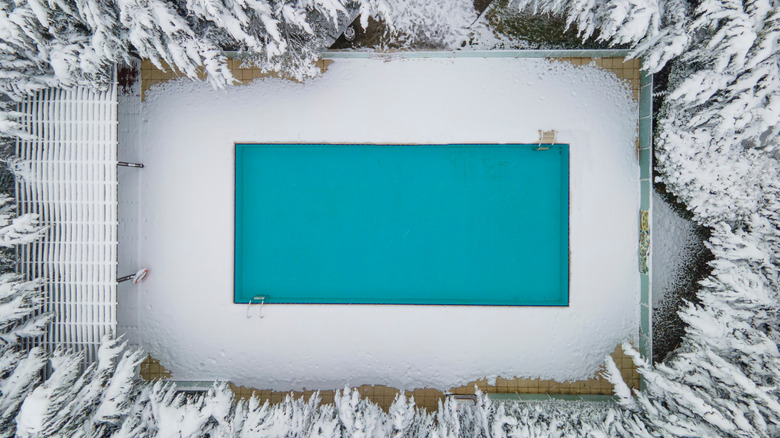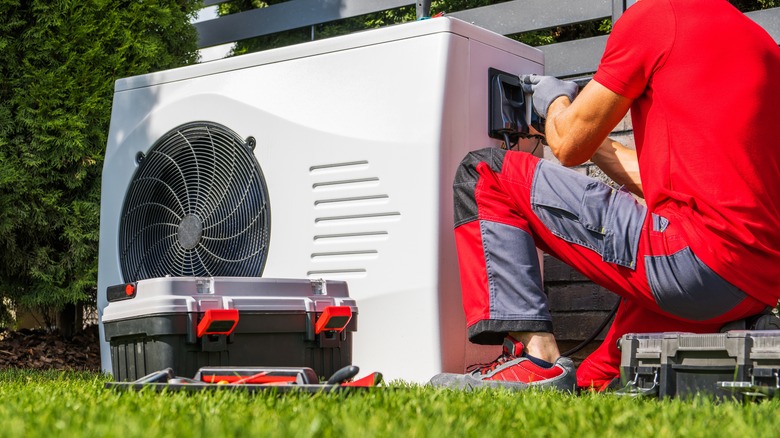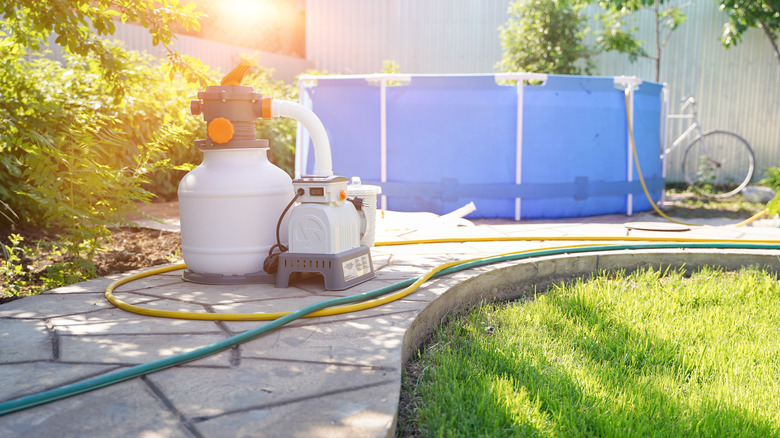Can Pool Heaters Freeze During The Winter?
When freezing winter temperatures rear their head, there's no shortage of issues for homeowners to take care of. From winterizing their home's doors and windows to dealing with insane energy bills and bursting pipes, most homeowners don't give their swimming pools a whole lot of thought after it becomes consistently chilly outside. However, while many people with swimming pools are well-versed in the importance of winterizing their pool, some may return to their pool in the spring only to find that their heat pump became damaged due to freezing winter weather.
Simply put, when a pool's heater freezes during the winter, most homeowners are taken by surprise. For one thing, many pool heaters are advertised as freeze-proof, since they come equipped with a defrosting unit or a design that maintains constant airflow in order to prevent freezing, explains Sprsun. However, even advanced pool heaters that sport these useful features can freeze under certain conditions, so it's always better to be safe than sorry if you're expecting a cold winter in your area.
Why your pool's heater may freeze during winter
While there are a number of causes for a frozen pool heater, the most common cause is improper winterization. Every season before closing your pool down, there are several important steps you will want to take to prevent damage to your heater. According to Combined Energy Services, you should open your heater's winterization ports and pressure switch, as well as ensure that all standing water has been removed from the unit. However, to be absolutely safe, it's a good idea to bring the heater inside your home, as this can extend its life and help prevent it from becoming damaged by inclement weather.
When the water that moves through your pool's heater becomes stationary, that water becomes at risk of freezing once temperatures start to dip. Luckily, this can be avoided fairly easily by draining the water, or by ensuring that the water remains in constant motion and is thus unable to freeze. There are also a number of products and services you can invest in that aim to prevent your pool's heater from freezing.
How to prevent a frozen pool heater
The first step to ensuring your pool heater doesn't freeze is to learn exactly what features it includes to help it survive the cold season. If you plan on running water throughout your heater and pool all winter long, it's a good idea to have a freeze protector set up, notes Sprsun, as this can automate the process by which your pool's water stays in constant motion and at an above-freezing temperature. Also, be sure to acquaint yourself with the pool heater's defrosting functionality, since this can save your unit if freezing does occur.
Another way to prevent a frozen pool heater is to ensure that your unit is up-to-date in terms of maintenance and repairs. A faulty valve, a damaged control board, or even low freon pressure can create conditions that lead to your unit freezing. As such, sometimes it's worth it to bring a professional over to your home that can give your heater a thorough inspection. It's also wise to cover the top of your pool heater, as rainwater can settle there and freeze, which may compromise the unit.


